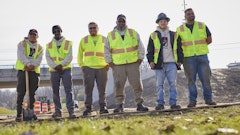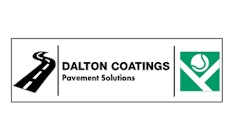Education is the key to helping your customers achieve the best possible outcome.
Helping your clients determine the right approach and best long-term solution can help you stand out as a trusted partner in their process. We’ve all seen deteriorated driveways that people are hoping can be patched in an effort to save money. But in reality we know this can be a costly mistake. It’s an estimator’s job to provide customers with an accurate assessment of their driveway, explaining the repair options available, or recommending that replacing the driveway may be the wiser, more cost-effective answer.
This reference tool can help you address the customer’s driveway needs and present solutions. We give a version of this checklist to our customers (you can download it at http://bit.ly/2FeUZk1).
It will remind them of what they learned during your informative appointment, allow them to make an educated purchase decision, and ultimately to choose your company for their project.
Asphalt Maintenance
Proper maintenance will help prolong the life of an asphalt and prevent premature replacement. The most common types of driveway maintenance are:
- Crack Filling. When analyzing cracks in a driveway, it is important to determine if they are superficial or if they have widened enough to put the base in peril. It is primarily these deeper cracks (expansion or linear) that need attention. Expansion cracks are caused by the ground shifting due to temperature and moisture changes. They should be professionally cleaned or routed, sealed and filled with a hot rubber crack sealant which will keep moisture - the enemy of driveways everywhere - from seeping under the asphalt and damaging its base.
- Sealcoating. This liquid coating is applied to driveways (and parking lots) to help shield the asphalt surface from water, weather and UV rays. Sealcoating also improves the appearance of a driveway by returning the asphalt to its original rich, black color. Sealcoating is an affordable way to extend the life of your asphalt provided it is done sparingly. Always allow the old sealant to wear off for before reapplication, otherwise the sealant itself can build up damage the asphalt that you are trying to protect. The length of time it takes for sealer to wear depends on a variety of factors including weather.
Asphalt Repair
Repairs are needed when the asphalt pavement or parts of it have begun to deteriorate to the point where normal maintenance will not be cost-effective.
- Alligator Cracks or Fatigue Cracking. These cracks resemble the skin of an alligator and are generally a sign that the base under the asphalt pavement is failing. The base could be too thin or the drainage system could be nonexistent or not working properly. The damaged asphalt pavement and any damaged base should be removed, the base compacted, and a new asphalt patch installed. If the area(s) are large or plentiful, a full replacement may be the recommended solution.
- Potholes. This may be the culmination of untreated alligator cracks. Potholes can be an eyesore, which distracts from your home’s curb appeal. They can also be a safety risk for people and vehicles. Minor potholes can potentially be cleaned, prepped and filled but patching them may not fix the real cause of the problem. Multiple or large potholes are a sign that replacing the driveway may be a better solution to repairing it.
- Settling. Settling can happen anywhere within a driveway and the suggested repairs really depend on the location and severity of the settling. You may notice that the asphalt has settled along your garage apron, sidewalk, pavers or street approach. It’s not uncommon because these are two different material surfaces which shift independently of each other. However, if it creates a hazardous situation, you will want to consider having it patched.
- Low Areas. If your driveway has low areas that tend to puddle and collect water, it is annoying. If it you live in northern climates, those puddles can turn into dangerous, icy spots. The suggested actions range from using salt on the area in the winter (it won’t harm asphalt) to surface (also called “skin”) patching if the areas are deep enough, to starting over with a new driveway.
- Rutting. These channel-like depressions are caused by lateral movement of the asphalt, base and sub-base layers when under the weight and pressure of a vehicle. If the ruts are deep enough, surface (or skin) patching will help to smooth out the area, but not address the underlying issue. If the rutting is severe, either the affected section or the entire driveway should be excavated - both the asphalt and base layers - so that a geo-textile fabric can be installed to stabilize the subbase.
- Sink Holes. Sink holes are usually caused by an improper or weak foundation, a broken water line or other unusual occurrences that happen underground. The asphalt surrounding the sink hole should be removed so that the hole, no matter how bottomless it may seem, can be filled and the base properly compacted.
- Apron Repair. If the holes are along the garage floor, it indicates that the garage’s foundation blocks are “open.” This surprisingly common repair involves removing the asphalt (or concrete garage apron) as well as the base so that the blocks can be accessed, filled and capped off prior to patching.
Asphalt Replacement
If the driveway has more than one of repair issues discussed above, or if the damage covers more than 30% of the total area, a full replacement is the likely recommendation. While this costs more initially for the homeowner, you can help them by explaining that other repairs won’t significantly extend the life of the driveway and that a new driveway is the most cost-effective approach in their situation.
Bea Bonte is a marketing associate for Alpine Asphalt, a commercial and residential asphalt company in Minneapolis, MN. She can be reached at 612-706-8018 or 612-827-7702 or via email at [email protected].
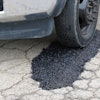



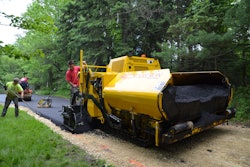

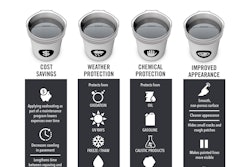




![Lee Boy Facility 2025 17 Use[16]](https://img.forconstructionpros.com/mindful/acbm/workspaces/default/uploads/2025/09/leeboy-facility-2025-17-use16.AbONDzEzbV.jpg?ar=16%3A9&auto=format%2Ccompress&fit=crop&h=135&q=70&w=240)



